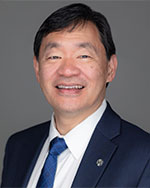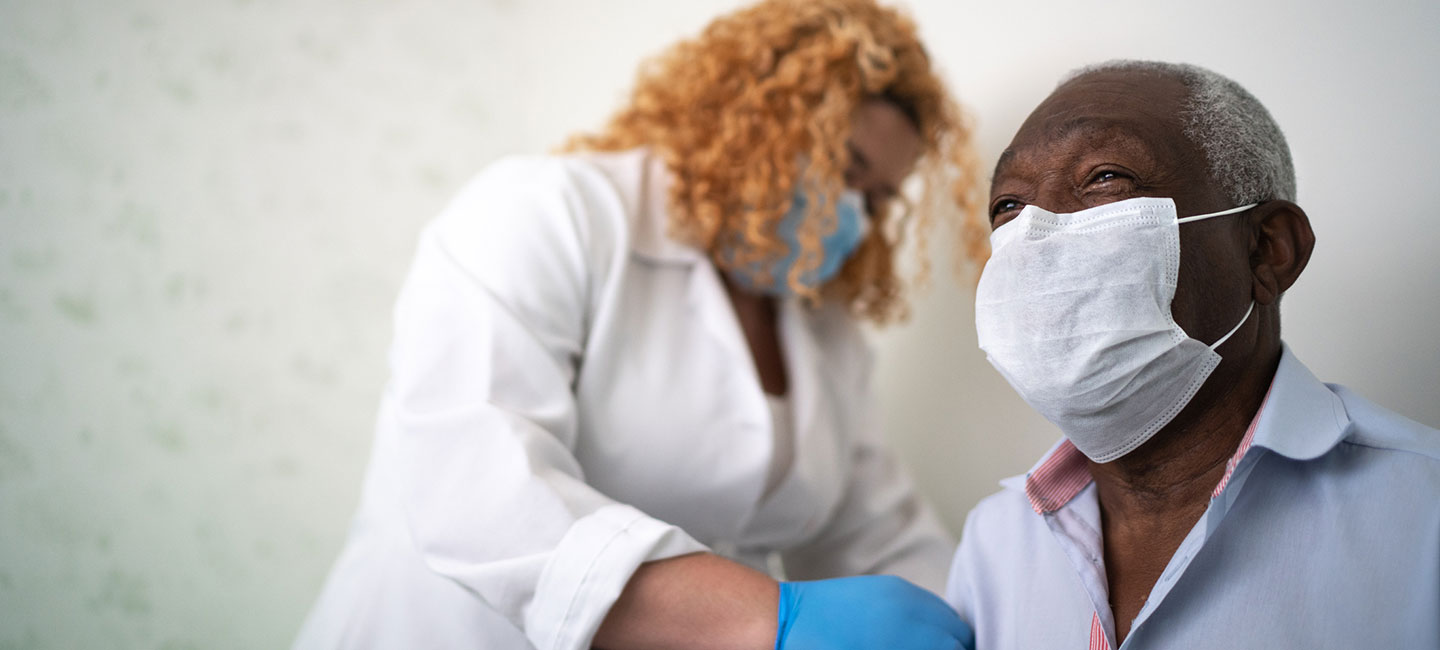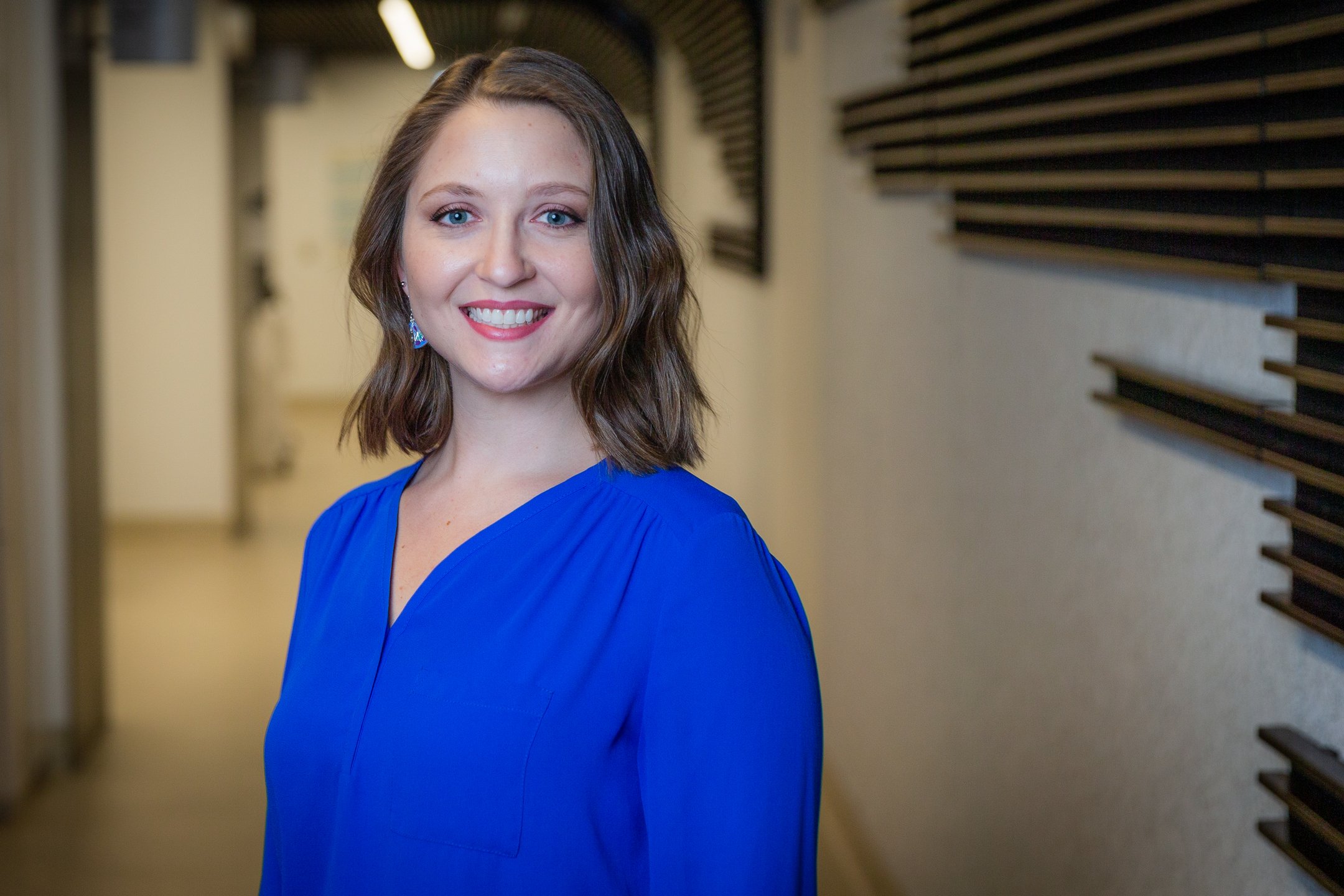Your COVID-19 Vaccine Questions Answered
As health care facilities begin administering COVID-19 vaccines, hope is on the horizon for anxious cancer patients living in fear of the virus. To address the pressing concerns voiced by cancer patients about COVID-19 vaccines, Moffitt Cancer Center’s Patient and Family Advisory Program brought experts and patients together for an online webinar. Over 600 people attended and participated.
We answered seven of the top questions most frequently asked by our patients in the recap below. You can watch the full 1-hour replay of the webinar by clicking here or by scrolling below and clicking play on the video.
Are the vaccines safe for cancer patients?
It’s safe for most cancer patients to receive the vaccine. Moffitt physicians will determine whether those undergoing chemotherapy, immunotherapy, radiation therapy or surgery are eligible. For some patients undergoing treatments that suppress the immune system, it is beneficial to wait to receive the vaccine until the immune system can mount a response. Consult with your oncologist before being vaccinated.
Since December, more than 6,150 Moffitt patients have received their first dose. Both Pfizer and Moderna vaccines use a messenger RNA, or mRNA, a new technology in vaccine development. The U.S. vaccine safety system ensures that all vaccines are as safe as possible. The detailed data indicates Pfizer's vaccine is a highly effective and safe vaccine, based on a clinical trial of more than 40,000 diverse participants. Moderna’s clinical trial included 30,000 participants. Data suggests both vaccines are about 95% effective at protecting people from developing COVID-19.
“In my opinion, as an immunologist, it’s one of the safest, most effective vaccines ever created,” said Dr. Patrick Hwu, president and chief executive officer of Moffitt Cancer Center. “These were initially cancer research trial vaccines and have been safely given to cancer patients for at least the last five years. It was pretty trivial to change it from a cancer vaccine to a COVID vaccine. They just had to substitute the protein that was being presented to the immune system. By doing that, they made a safe, effective vaccine only within a year.”

What can I expect while getting the vaccine and after?
Currently, Moffitt is administering vaccines at the Magnolia and McKinley campuses. Upon arrival, patients should wear their masks and complete the standard COVID-19 health screening that includes a questionnaire of recent symptoms and a temperature check. Patients will check in at the registration desk and complete paperwork prior to receiving the vaccine.
After being vaccinated, patients are required to remain in the vaccine clinic for a 15-minute observation period. All vaccinated patients will receive a vaccination card that they should bring with them upon returning for their second dose.
While the COVID-19 vaccines do not contain SARS-CoV-2 and cannot give you COVID-19, side effects can be similar to the flu shot. Symptoms can include fever, soreness or swelling at the injection site, tenderness or swelling of lymph nodes, headaches, chills, nausea and vomiting. Mild symptoms may not be immediate and may reveal themselves over a period of days following your vaccine. Side effect occurrence is typically higher after the second dose of the vaccine.
“You are not getting the virus,” reassured Dr. John Greene, chair of the Infectious Diseases Department. “You will not be infected, and it will not get into your DNA. This will not give you a positive COVID-19 test.”
In more severe cases, there is a remote chance that the vaccine could cause an allergic reaction. This kind of reaction would usually occur within a few minutes to one hour after getting your first dose. Signs of a severe allergic reaction can include difficulty breathing, swelling of your face or throat, a fast heartbeat, a bad rash all over your body, dizziness or weakness.
How is Moffitt determining which patients receive the vaccine?
Moffitt would like to vaccinate every patient. However, Moffitt is following the prioritization guidance as directed by the state of Florida. With each additional allotment of vaccines that Moffitt receives from the state of Florida, the state provides guidelines on who to vaccinate. For the most recent shipment, we will continue to follow the Governor’s Dec. 23, 2020 executive order, meaning Moffitt will be able to offer additional clinics for patients as they are at a higher risk for COVID-19. As more vaccines are received, Moffitt will continue to follow directions provided by the state.
How do I know if I qualify for the vaccine?
Moffitt experts are evaluating all patient records to determine when it’s best for each patient to receive their vaccine. As a patient at Moffitt Cancer Center, your care team is comprised of medical providers and cancer experts that have your best interests in mind. This team evaluates your unique medical history and treatment plan to determine the best timing for you to receive the vaccine. Once your care team determines when you can receive the vaccine, Moffitt’s scheduling team will reach out directly to schedule your vaccine appointment.
“We are having the physicians and providers that work with patients directly help decide who is in the right point in their treatment to receive the vaccine,” said Dr. Bob Keenan, chief medical officer and vice president of quality.
Due to high a volume of phone calls, patients with questions should contact their care team through the message center within the patient portal by visiting My.Moffitt.org. Your care team will respond to your message after reviewing your medical history. For patient portal assistance, please call 813-745-8111.
As a person of color, how can I trust the COVID-19 vaccines?
Moffitt is concerned that people of color are not receiving the vaccine at the same rates as white populations, which national data reflects. A recent Kaiser Family Foundation survey showed that nearly half of African Americans indicated they’re unlikely to receive the vaccine. Within the Tampa Bay area, a survey reflected that 38% of Hispanics reported they would not get the vaccine.

“Part of our job is to help these communities believe in the science and that the vaccine is safe for everyone,” said Dr. B. Lee Green, vice president of Diversity, Public Relations and Strategic Communications. “While we don’t want to dismiss what has happened in the past, we want to make sure people understand the process and how different it is today. Many community members don’t even realize that some of the researchers who developed these vaccines are Black and minority individuals.”
Given this startling data, Moffitt is committed to alleviating the fears that people of color may have toward the vaccines. Moffitt is developing strategies to reach these minority patient populations through strategic communications and community outreach.
If not from Moffitt, how can I get the vaccine?
The Florida Department of Health has launched a central website for eligible individuals to pre-register for a vaccine appointment. Florida residents can visit MyVaccine.FL.gov to pre-register. This website will allow individuals who are eligible to be proactively contacted when vaccine appointments are available at state-supported vaccination sites. Once appointments are available, individuals will be contacted by phone call, text or email and will be assisted in scheduling an appointment.
Can my caregiver receive the vaccine?
We understand that our most vulnerable patients are only as safe as the community that surrounds them. While Moffitt would like to be able to offer the vaccine to our patients’ caregivers, due to a limited supply and instructions provided by the state of Florida, we are only able to offer the vaccine to patients at this time. We recommend that caregivers and family members pre-register at MyVaccine.FL.gov so the state can contact them as vaccines become available.
Patient Perspectives
Two patient advisors from the Patient and Family Advisory Council (PFAC) joined the webinar to offer unique perspectives about receiving the vaccine.
Barney Morris, patient advisor and prostate cancer survivor, wishes to reassure people of color that the vaccine is safe. Morris is active in his community and works to serve as an encouraging intermediary between health care professionals and people of color.
“The major problem is the failure to communicate accurate, reliable information in a format that communities can believe and understand – and that’s the challenge,” said Morris.
Patti Halula, PFAC co-chair and metastatic breast cancer survivor, shared her unique experience getting the vaccine at the same time as her 74-year old mother. For the patients still contemplating getting the vaccine, she encourages them to reach out to their care team and consider the risks they take every day in pursuit of cancer treatment.
“This is a safe vaccine,” said Halula. “Every single day, every single one of us makes that choice to sit in the chair for chemotherapy, shots and radiation. We take those treatments to save our lives. We’re willing to be courageous and brave for the benefits that those treatments can bring us. I ask everyone to think about the choices that a vaccine could bring you for tomorrow.”
You can watch the 1-hour webinar in full by clicking here or clicking play on the video below.



